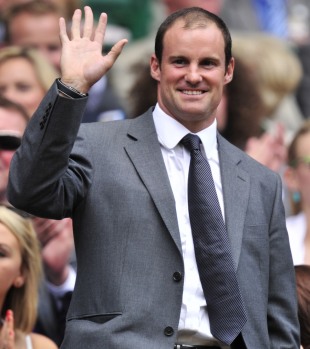'People will forgive you for being wrong, but they will never forgive you for being right - especially if events prove you right while proving them wrong.' Thomas Sowell
Search This Blog
Saturday, 5 August 2023
Friday, 16 June 2023
Fallacies of Capitalism 10: Work as Self Fulfillment Fallacy
Work as Self Fulfillment Fallacy
The "work as self-fulfillment" fallacy is the belief that work should solely provide personal fulfillment and meaning in life. This fallacy overlooks the reality that work is often a means to earn a living and meet basic needs, and that personal fulfillment can come from various aspects of life beyond work. Let's understand this concept with simple examples and quotations:
Work as a means of survival: For many people, work is primarily a way to earn income and support themselves and their families. As economist Adam Smith astutely observed, "It is not from the benevolence of the butcher, the brewer, or the baker that we expect our dinner, but from their regard to their own interest." This means that individuals engage in work to fulfill their basic needs like food, shelter, and healthcare. While some may find fulfillment in their work, it is not the sole purpose for everyone.
Multiple dimensions of fulfillment: Personal fulfillment can stem from various aspects of life, such as relationships, hobbies, personal growth, and contribution to society. As psychologist Abraham Maslow pointed out, "What a man can be, he must be." This suggests that individuals have a range of needs and aspirations beyond work. For example, someone may find fulfillment in being a supportive parent, pursuing creative passions, or engaging in community service. Work is just one piece of the puzzle in finding overall fulfillment.
Challenging and unfulfilling work: Not all work provides immediate personal fulfillment. Some jobs may be repetitive, physically demanding, or mentally draining. As philosopher Bertrand Russell expressed, "One of the symptoms of an approaching nervous breakdown is the belief that one's work is terribly important." This highlights the danger of attaching excessive significance solely to work for personal fulfillment. Many individuals endure unfulfilling jobs to make ends meet or support their families, finding satisfaction and fulfillment outside of work.
External pressures and societal expectations: The fallacy of work as self-fulfillment can be reinforced by societal pressures and cultural norms. People may feel compelled to pursue certain careers or work long hours to meet societal expectations of success and personal fulfillment. As philosopher Albert Camus remarked, "A man's work is nothing but this slow trek to rediscover, through the detours of art, those two or three great and simple images in whose presence his heart first opened." This suggests that fulfillment may arise from creative pursuits and personal passions beyond conventional work roles.
In summary, the "work as self-fulfillment" fallacy disregards the multifaceted nature of personal fulfillment and the fact that work often serves as a means to meet basic needs. While some individuals may find fulfillment in their work, it is important to recognize that fulfillment can stem from various aspects of life. Embracing a more holistic view of personal fulfillment allows individuals to seek satisfaction in relationships, personal growth, hobbies, and contributions to society, in addition to their work. As economist John Maynard Keynes wisely noted, "The life of money-making is one undertaken under compulsion, and wealth is evidently not the good we are seeking; for it is merely useful and for the sake of something else."
Monday, 6 June 2022
Sunday, 3 October 2021
How to talk your way to the top
Janan Ganesh in The FT
Always doubt the Stoicism of a “Stoic”. If the point of their creed is cool detachment from the world, the active espousal of it seems perverse, like an anarchist’s fiscal policy. Marcus Aurelius, don’t forget, never meant his Meditations — sales of which boomed even pre-lockdown — to be read. Whether his appropriation by the shamans of modern self-help is his triumph or his ultimate rout, I can’t decide.
Strange, isn’t it, which bits of antiquity we exhume, and which we let lie? The American right wants more of the neoclassical architecture that makes Washington so grand, and so inert. Britain, which is definitely a serious country, is trying to revive Latin in schools. I’d be keener on this Restoration if there were a place for the most sorely missed feature of the ancient world. Bring back, for the sake of the young, the teaching of rhetoric.
I have seen enough meetings, parties, job interviews, broadcast slots, panel events and dates to sense which habits of speech harm a person’s standing with others, sometimes without either side quite knowing it. They include the filler words “like” and, in England, “sort of”, often pronounced, with nervous speed, “siddiv”. They include starting a sentence with, “I guess . . . ” and ending it with, “Does that make sense?” They include, above all, the interrogative tone in non-interrogative statements.
What links these familiar but far from exhaustive examples is their disclosure of self-doubt. And not the endearing kind. “Like” stems from a deep fear of pauses, lest the other person stops listening. Upspeak is a constant probing for approval. These tics are all the worse in a non-American as they suggest a further, almost meta lack of confidence: that in one’s own culture.
The aesthetic case against a lot of modern speech is easy to mount. The challenge is to convince people of the strategic stakes: that mere avoidance of the glitches above will raise their perceived stature.
In today’s economy, few workers get to be judged on output that is discrete and identifiably theirs (such as a newspaper column). More often, they are among the many contributors to a rolling and amorphous process: a corporate merger, say, or IT maintenance. One effect is that, in all candour, I have no idea what most of you do.
Another is that a career can hinge on meetings and other “performances” between the actual doing of work. When someone’s added value is so hard to delineate, the spoken word becomes a clue. And this, to stress, is just the professional risk of modern speech habits. It says nothing of the social and romantic costs of sounding like a teenager from Encino.
The flaw in most self-help is that it dwells on the interior life, rather than outward technique. To exhort someone into a state — of confidence, of Stoicism, of anything — at least in a lasting way, is hard. But small adjustments in what they do can transform their outcomes. And from those real-life gains comes the gradual change in inner state.
I don’t wish I had had, when young, some protein shake-reviewer on YouTube urging me to live in alignment with my values, dude. What I wish I had had was someone to tell me that nothing — not eye-contact, not spread arms — conveys confidence like a mid-sentence pause. Or that a flat, declarative tone in a room full of upspeakers is such an advantage as to be tantamount to cheating. This, which we moderns learn through trial and error, if at all, is what an Athenian would have recognised as rhetoric. It is a life skill, not just or even mainly a political one.
When and why our culture stopped treating it as such, others will know. But the victims are all around us. To speak commandingly does not require a John Updike vocabulary or grammatical exactitude. It does not entail the crushing of regional accents and demotic idioms. I offer Manchester’s own Noel Gallagher as a model to emulate, and legion Sloanes as the inverse. As for America, many decades into upspeak, no one who has that tic of the elite campuses and the modish industries has had a sniff of the White House. The people have, in whatever style, spoken.
Thursday, 20 May 2021
Monday, 10 May 2021
US-China rivalry drives the retreat of market economics
Gideon Rachman in The FT
Old ideas are like old clothes — wait long enough and they will come back into fashion. Thirty years ago, “industrial policy” was about as fashionable as a bowler hat. But now governments all over the world, from Washington to Beijing and New Delhi to London, are rediscovering the joy of subsidies and singing the praises of economic self-reliance and “strategic” investment.
The significance of this development goes well beyond economics. The international embrace of free markets and globalisation in the 1990s went hand in hand with declining geopolitical tension. The cold war was over and governments were competing to attract investment rather than to dominate territory.
Now the resurgence of geopolitical rivalry is driving the new fashion for state intervention in the economy. As trust declines between the US and China, so each has begun to see reliance on the other for any vital commodity — whether semiconductors or rare-earth minerals — as a dangerous vulnerability. Domestic production and security of supply are the new watchwords.
As the economic and industrial struggle intensifies, the US has banned the exports of key technologies to China and pushed to repatriate supply chains. It is also moving towards direct state-funding of semiconductor manufacturing. For its part, China has adopted a “dual circulation” economy policy that emphasises domestic demand and the achievement of “major breakthroughs in key technologies”. The government of Xi Jinping is also tightening state control over the tech sector.
The logic of an arms race is setting in, as each side justifies its moves towards protectionism as a response to actions by the other side. In Washington, the US-China Strategic Competition Act, currently wending its way through Congress, accuses China of pursuing “state-led mercantilist economic policies” and industrial espionage. The announcement in 2015 of Beijing’s “Made in China 2025” industrial strategy is often cited as a turning point. In Beijing, by contrast, it is argued that a fading America has turned against globalisation in an effort to block China’s rise. President Xi has said the backlash against globalisation in the west means China must become more self-reliant.
The new emphasis on industrial strategy is not confined to the US and China. In India, Narendra Modi’s government is promoting a policy of Atmanirbhar Bharat (self-reliant India), which encourages domestic production of key commodities. The EU published a paper on industrial strategy last year, which is seen as part of a drive towards strategic autonomy and less reliance on the outside world. Ursula von der Leyen, European Commission president, has called for Europe to have “mastery and ownership of key technologies”.
Even a Conservative administration in Britain is turning away from the laissez-faire economics championed by former prime minister Margaret Thatcher, and seeking to protect strategic industries. The government is reviewing whether to block the sale of Arm, a UK chipmaker, to Nvidia, a US company. The UK government has also bought a controlling stake in a failing satellite business, OneWeb.
Covid-19 has strengthened the fashion for industrial policy. The domestic production of vaccines is increasingly seen as a vital national interest. Even as they decry “vaccine nationalism” elsewhere, many governments have moved to restrict exports and to build up domestic suppliers. The lessons about national resilience learnt from the pandemic may now be applied to other areas, from energy to food supplies.
In the US, national security arguments for industrial policy are meshing with the wider backlash against globalisation and free trade. Joe Biden’s rhetoric is frankly protectionist. The president proclaimed to Congress: “All the investments in the American jobs plan will be guided by one principle: Buy American.”
In an article last year, Jake Sullivan, Mr Biden’s national security adviser, urged the security establishment to “move beyond the prevailing neoliberal economic philosophy of the past 40 years” and to accept that “industrial policy is deeply American”. The US, he argued, will continue to lose ground to China on key technologies such as 5G and solar panels, “if Washington continues to rely so heavily on private sector research and development”.
Many of these arguments will sound like common sense to voters. Protectionism and state intervention often does. But free-market economists are aghast. Swaminathan Aiyar, a prominent commentator in India, laments the return of the failed ideas of the past, arguing that: “Self sufficiency was what Nehru and Indira Gandhi tried in the 1960s and 1970s. It was a horrible and terrible flop.” Adam Posen, president of the Peterson Institute for International Economics in Washington, recently decried “America’s self-defeating economic retreat”, arguing that policies aimed at propping up chosen industries or regions usually end in costly failure.
As tensions rise between China, the US and other major powers, it is understandable that these countries will look at the security implications of key technologies. But claims by politicians that industrial policy will also produce better-paying jobs and a more productive economy deserve to be treated with deep scepticism. Sometimes ideas go out of fashion for a reason.
Friday, 17 July 2020
Self-fulfilling prophecies can be harnessed for good
It's 1963. A young psychologist named Bob Rosenthal conducts an experiment in which his assistants place rats in mazes, and then time how long it takes the rats to find the exit. They are housed in two cages: one for the smartest rats and one for rodent mediocrities.
The assistants are not surprised to find that the smart rats solve the mazes more quickly. Their supervisor is — because he knows that in truth, both cages contain ordinary lab rats.
Prof Rosenthal — he would go on to chair Harvard’s psychology department — eventually concluded that the secret ingredient was the expectations of his assistants: they treated the “special” rats with care and handled the “stupid” rats with disdain. When we expect the best, we get the best — even if we expect it of a rat.
The story is well told in Rutger Bregman’s new book Humankind. His interest in Prof Rosenthal’s work is not hard to explain. Mr Bregman argues that people are fundamentally friendly and self-motivated. But he also argues that when we expect more of each other then, like the rats, we rise to the occasion. If schools, police or corporations believe that people are sluggish, dishonest or lazy, they may be proved right.
Prof Rosenthal coined the phrase “the Pygmalion effect”, the name inspired by Ovid’s account of a sculptor whose infatuation with a statue brings it to life. But the Pygmalion effect is just one example of what the sociologist Robert K. Merton called “self-fulfilling prophecies”.
There’s the placebo effect and its malign twin, the “nocebo effect”: if the doctor tells you a drug may produce side effects, some patients feel those side effects even if given an inert pill.
Self-fulfilling prophecies are a staple of economics. A recession can be caused by the expectation of a recession, if people hesitate to spend, hire or invest. And a bank run is the quintessential self-fulfilling prophecy.
The self-defeating prophecy is just as fascinating, and a problem that bedevils economic forecasters. If I credibly predict a surge in the price of oil next year, the surge will happen immediately as oil traders buy low now to sell high later. The forecast goes awry precisely because people thought it was accurate.
The coronavirus era has brought us a vivid example. A vocal minority argues that Covid-19 is not much worse than the influenza we ignore every winter, so both mandatory lockdowns and voluntary precautions have been unnecessary.
A glance at the data gives that argument a veneer of plausibility. The UK has suffered about 65,000 excess deaths during the first wave of the pandemic, and 25,000-30,000 excess deaths are attributed to flu in England alone during bad flu seasons.
Is the disparity so great that the country needed to grind to a halt?
The flaw in the argument is clear: Covid was “only” twice as bad as a bad flu season because we took extreme measures to contain it. The effectiveness of the lockdown is being used as an argument that the lockdown was unnecessary. It is frustrating, but that is the nature of a self-defeating prophecy in a politicised environment.
One might say the same thing about Fort Knox. Nobody has ever tried to steal the gold, so why bother with all the guards?
Self-fulfilling prophecies can be pernicious; writing in 1948, Prof Merton focused on racism. For example, some said African Americans were strikebreakers who thus should not be allowed to join trade unions. Prof Merton pointed out that their exclusion from unions was the reason they had been strikebreakers. Sexism also drips with self-fulfilling prophecies. Since our leaders were usually straight white men in the past, it is all too easy to favour such people for leadership roles in the future.
Such prophecies can also be harnessed for good. Bob Rosenthal took his ideas into schools, where he found that what is true of rats being respectfully handled is just as true of pupils. Persuade a teacher that a pupil has hidden talents and the child will soon flourish.
Yet one can put too much faith in the self-fulfilling prophecy. Fervent excitement about the dizzy ascent of Tesla’s share price should help the company sell cars and raise funds but, in the long run, the value of a Tesla share will be determined by Tesla’s profitability.
Self-fulfilling prophecies are particularly tempting for politicians. It is all too easy to paint a project such as Brexit in Tinker Bell terms: if we clap our hands and believe in Brexit, it will not disappoint. Conveniently, all setbacks can be blamed on “Remoaners”.
The fact is that some things are false no matter how fervently we wish them to be true. We often plunge into projects with rosy views of how long they will take and how successful they will be, but our optimism only gets us started. It does not finish the job.
I think we should try to treat each other with kindness and respect, and not just because it worked for Bob Rosenthal’s rats. But there are limits to the power of sheer positive thinking. Even in the cartoons, Wile E. Coyote eventually feels the tug of gravity.
Tuesday, 19 February 2019
Sunday, 24 December 2017
Why are growing numbers marrying themselves?
In the summer of 2000, New York-based performance artist Gabrielle Penabaz decided to throw a wedding party for herself while nursing a broken heart.
She carefully chose a location, flowers, a quartz ring, a sweetheart-neckline wedding dress and wrote thoughtful vows.
She even wore "something borrowed, something blue" on the day, even though the event was purely symbolic and lacked one crucial component: a groom.
Nonetheless, her friends and family attended and Ms Penabaz says she had the "best wedding ever". Since then she has been "officiating" at other people's self-marriage ceremonies as a form of performance art - a service for which she charges.
Her clients are usually single women, although people from all genders and marital statuses have taken part.
 Image copyrightMARRY YOURSELF VANCOUVERImage captionWomen attending a self marriage ceremony in Canada
Image copyrightMARRY YOURSELF VANCOUVERImage captionWomen attending a self marriage ceremony in CanadaShe claims to have "married" more than 1,500 people, typically in ceremonies like her own, with mock-up chapels, costumes, cakes and most importantly, vows.
"The ceremonies are usually very cathartic and all about self-love," Ms Penabaz says.
"80% of the people whom I married to themselves shed a tear reading their vows. They usually say things like 'I forgive myself' and 'I will no longer call myself ugly'."
Welcome to the world of self-marriage or "sologamy", which has attracted increasing attention over the last few years.
While it is not legal to marry yourself anywhere in the world, reports of people holding mock ceremonies go for several decades and can be found everywhere from Japan to Italy, to Australia and the UK.
The act has also been the theme of episodes of popular US TV shows such as Glee and Sex and the City, and there are now whole businesses - such as Ms Penabaz's - dedicated to helping people plan their solo events.
Dominique Youkhehpaz officiated at her first solo wedding in 2011 at the US arts festival Burning Man and has since set up the consultancy Self Marriage Ceremonies.
She offers a 10-week online course to prepare brides or grooms for sologamy, costing $200 (£149), as well as private counselling sessions. Ms Youkhehpaz says she's worked with more than 250 clients to date and business is booming.
"A self-marriage ceremony can be anything from a simple ritual in one's bedroom to a more lavish celebration," she explains.
She also thinks it can be incredibly therapeutic for those who take part. "I have witnessed people leave abusive relationships, step more fully into their life's work or meet their beloved after marrying themselves."
Proponents say sologamy is about self-love, acceptance and claiming the social affirmation normally reserved for couples who wed.
While there are no official figures about those choosing to marry themselves, the interest comes at a time when the number of unmarried people is at record highs in many advanced economies, according to the OECD.
 Image copyrightSOPHIE TANNERImage captionBriton Sophie Tanner tied the knot with herself after her partner cheated on her
Image copyrightSOPHIE TANNERImage captionBriton Sophie Tanner tied the knot with herself after her partner cheated on herNot surprisingly, businesses have been catering to this new market. In 2014, the Japanese travel agency Cerca Travel reportedly offered a two-day package for solo brides for upwards of £2,500. It included dress fitting, make-up and hair styling and a photo shoot.
Dan Moran, a Los Angeles-based jewellery designer, says he started receiving calls from clients wanting sologamy rings 18 months ago and wedding planners and photographers he knows are getting similar requests.
Most of his new clients are "urban, affluent and educated" women, and interestingly many are already married.

More stories from the BBC's Business Brain series looking at interesting business topics from around the world:
Would you sleep in your favourite shop?
Art and wine: Learning to paint while drinking
How the grilled cheese sandwich went gourmet

"In the coming years, people who work in the wedding industry will definitely have to keep sologamists in mind and tailor their service," he says.
Certainly people are willing splash out on sologamy. Italian Laura Mesi wed herself at a "fairytale" event this September, complete with a white dress, three-layer wedding cake, bridesmaids and 70 guests.
The 40-year-old, who made the move after her 12-year relationship ended, spent £8,700 on the day.
 Image copyrightSOPHIE TANNERImage caption"It was the best day of my life," says Sophie, here hugging her father - who gave her away
Image copyrightSOPHIE TANNERImage caption"It was the best day of my life," says Sophie, here hugging her father - who gave her awayIn the UK, Sophie Tanner married herself in 2015. "For me, it was an important ceremony that demonstrates my commitment to self-compassion, " she told the BBC.
"The wedding was the best day of my life, complete with vintage gown, teary dad giving me away, and dancing bridesmaids."
But not everyone welcomes the sologamy trend. Some call it narcissistic and others criticise it as a pointless submission to a patriarchal institution.
Karen Nimmo, a clinical psychologist in New Zealand, says: "Self-dislike is at the root of so many psychological issues, so where marrying yourself is about healing from past trauma or relationship issues it can be helpful.
"But it's important to make sure your other relationships are healthy. If you rely too much on yourself and constantly put your own needs ahead of everyone else you may be slipping into narcissistic territory - and that's an unhealthy and lonely place to be."
Alexandra Gill, co-founder of consultancy Marry Yourself Vancouver, accepts marrying yourself "kind of is" narcissistic, but adds: "Aren't all traditional white weddings also narcissistic?"
She also says that marrying yourself doesn't have to be taken deadly seriously.
Since 2011, her firm has helped solo brides plan their big days, but is now branching out to offer a "ladies' night" concept which celebrates "self-love and sisterhood".
"Let's face it, all women grow up with the fairytale wedding stories and the princess culture isn't going away anywhere," she says.
"But self-marriage ceremonies allow us to re-write this narrative in which we don't need a groom."
"Weddings have always been a female-centred celebration, anyway," she says.
"Many more women would love to marry to themselves, but they're just self-conscious about it."
Sex in the City's heroic protagonist Carrie Bradshaw, who wed herself in a 2003 episode of the series, would surely agree.
Friday, 28 October 2016
Cricket - Be your own role model
Geoffrey Boycott, for all his faults, knows a thing or two about the game. One of his mantras is "Make your opponent do something they don't want to do." He says this because it's true.
If you're bowling to Alastair Cook, you don't pitch the ball short and wide, or on his hips, you pitch it outside off... and when he's struggling, when his footwork isn't just so, or he's overbalancing, he'll invariably have a nibble. When he's in form, however, his judgement is impeccable. Ignoring practically everything that isn't in his arc, he simply waits for the bad ball and puts it away, and his leave is a thing of frustrating beauty. He's not the most elegant, attractive or technically proficient member of the England set-up, but one look at the numbers show just how effective a cricketer he is. This is because he knows his own game.
In April 1997, an article appeared in the music press arguing that accurate self-assessment was vital for a musician to perform at their best, and described a psychological test that could quantify the gap between a performer's self-belief and his or her actual ability. It was, as the month of publication suggests, a joke, though like all good jokes it was built around close observation and understanding. Two years later, in 1999, two psychologists at Cornell University came to a similar conclusion, noting that low-ability individuals consistently overestimate their skill levels, while the converse is true of high-ability individuals. They called it the Dunning-Kruger effect. I called it the Position of Attitudes.
We've all seen the results of extreme disparity between actual and perceived ability. The batsman who thinks he can hit every ball for six but is always oh-so-unlucky; the bowler who is convinced he's lightning fast and pitches it short and shorter still, but will get the batsman soon. Neither cricketer wins games.
Accurately gauging one's own ability relative to that of the other players on the field (whether they are on your side or not) is a vital part of playing at one's best.
As a wicketkeeper who sometimes keeps above himself, it's a constant battle to find the right place to stand, especially to spinners. Obviously one ought to stand up to spin, but some bowlers are just too quick for me. I leak byes and am unlikely to take many nicks. Standing back even a yard or two may take stumpings out of the equation, but the byes dry up and I pouch the nicks.
We must allow ourselves to play our own game. Yes, we adapt to the situation, and sometimes that means we must take greater risks, but in acknowledging those risks we may still make the best of it
I know my own capabilities, and usually keep within them, but sometimes I give in to pressure and move to where someone else thinks I ought to stand. It rarely goes well. I'm pretty confident I know my keeping self.
When batting, the same is true. If you're aware of your limitations (and accept them), then you reduce the risk of failure. It's when you're tempted to overreach that things go badly. You decide to go for big shots when you're really a nudger and a nurdler.
On tour this summer, I played a vital innings batting at No. 5 (when I was probably the 12th best bat in the team) during which I watched partner after partner try too hard and perish accordingly. I simply waited for the ball to be well within my arc. It worked because I played to my strengths (such as they are) and made the bowlers come to me. Occasionally I simply tee off. This doesn't go so well.
We must allow ourselves to play our own game and not be lured into playing someone else's. No matter what the wicketkeeper says. Yes, we adapt to the situation, and yes, sometimes that means we must take greater risks, but in acknowledging those risks we may still make the best of it. Try to hit the ball too hard, try to bowl it too fast, try too many variations and the percentages plummet. Ask not, as they say, what the ball is going to do to you, but what you can actually do with the ball.
The England Test side has left in its wake many who have struggled to succeed because they have tried to change their natural game. And by this I don't mean adapting to the new arena, fine-tuning technique, or working on shot selection.
Nick Compton, convinced he needed to impress, tried to change his natural game and was caught hooking. Alex Hales struggled as an opener because he couldn't decide who to be: had he played freely he may still have failed, but that's okay. Yes, James Vince, Gary Ballance and a few others have arguably failed to make their game work at Test level, but they were honest with themselves in the process. Fail on your own terms, not somebody else's.
When Ben Duckett and Haseeb Hameed opened together in the warm-up game in Bangladesh, they were in direct competition for the vacant opening berth. Both played their own game, neither trying to impress. The result? They both impressed. This can only be good for English cricket.
We should aim to do the same, learn from Duckett and Hameed and be our own role models.
Tuesday, 27 October 2015
Thursday, 21 March 2013
The placebo effect is present in every medical intervention

Thursday, 16 August 2012
Being Oneself
The master of being himself

| |||
Related Links
Players/Officials: Andrew Strauss | Kevin Pietersen
Series/Tournaments: South Africa tour of England
Teams: England
| |||
| Strauss has been the master of being himself. Like Mark Taylor, he has never tried to hide the fact that he is a courteous, measured and controlled person | |||
